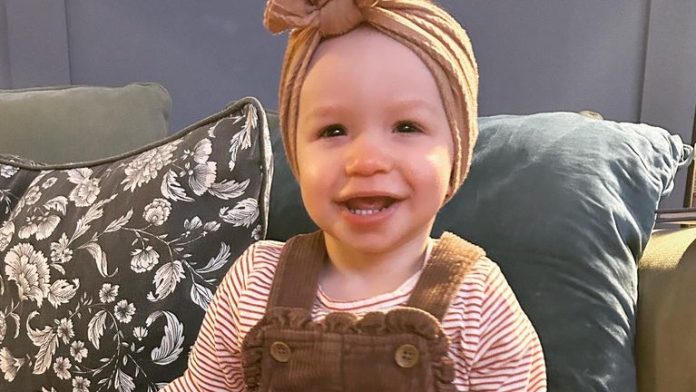A 19-month-old baby girl called Teddi has become the first child in the UK to receive a life-saving gene therapy treatment for the fatal disorder, metachromatic leukodystrophy (MLD).
The revolutionary gene therapy, known by its brand name Libmeldy®, has a list price of £2.8 million and was the most expensive drug in the world when NHS England negotiated a significant confidential discount last year to make the treatment available to NHS patients – it remains the most expensive drug licensed in Europe.
The genetic disease causes severe damage to the affected child’s nervous system and organs, resulting in a life expectancy of between just five and eight years.
The treatment is available on the NHS as a specialist service. It is being delivered within Royal Manchester Children’s Hospital – in collaboration with Manchester’s Centre for Genomic Medicine at Saint Mary’s Hospital – both part of Manchester University NHS Foundation Trust (MFT).
The centre in Manchester is one of just five European sites administering the treatment, and the only site in the UK.
Teddi and her sister Nala, 3, were both diagnosed with MLD in April last year but unfortunately, Nala was not eligible for the treatment as the clinical guidance requires the gene treatment to be administered before the irreversible damage caused by the disease progresses too far.
The life-saving gene therapy works by removing the child’s stem cells and replacing the faulty gene that causes MLD before re-injecting the treated cells into the patient.
Teddi was the first person in the UK to receive the treatment outside of a clinical trial, which began when she was 12 months old with the removal of stem cells at the end of June, which were then treated before the transplant took place in August and Teddi was discharged back to her home in Northumberland in October.
Now, Teddi is a happy and healthy toddler showing no signs of the devastating disease she was born with.
Teddi and Nala’s mother, Ally Shaw, 32, said: “In April last year, our world was turned upside down when not one, but both of our daughters were diagnosed with MLD. Being told our first daughter, Nala, wasn’t eligible for any treatment, would continue to lose all functions, and die extremely young was the most heart-breaking and hardest thing to come to terms with.
“However, amongst the pain, was hope for our younger daughter, Teddi. We were told that a new gene therapy treatment had, luckily, recently been made available on the NHS.
“We are extremely privileged that Teddi is the first child to receive this on the NHS and grateful that she has the opportunity to lead a long and hopefully normal life. Without this treatment, we would be facing both our children being taken away.
“We can only hope that one day, a treatment becomes available for all stages of MLD, and we feel strongly that it should be added to the new-born screening test to save more families from having to go through this heartache.
“We would like to say a huge thank you to our specialists, doctors and nurses and all the staff at Royal Manchester Children’s Hospital who have been fantastic in caring not just for Teddi, but us as a family.
“Teddi is doing absolutely brilliant! She is walking, running, a chatterbox, absolutely no signs so far of MLD. She is an absolute character and has everyone around her laughing all the time.”
The most common form of MLD usually develops in babies younger than 30 months and can lead to loss of sight, speech and hearing, as well as difficulty moving, brain impairment, seizures and eventually death in childhood.
The genetic disorder prevents the development of a crucial enzyme that leads to a build-up of fats that then destroy the protective layers around the child’s nerves.
Libmeldy, manufactured by UK-based biotech company Orchard Therapeutics, is a one-time treatment that corrects the underlying cause of MLD.







